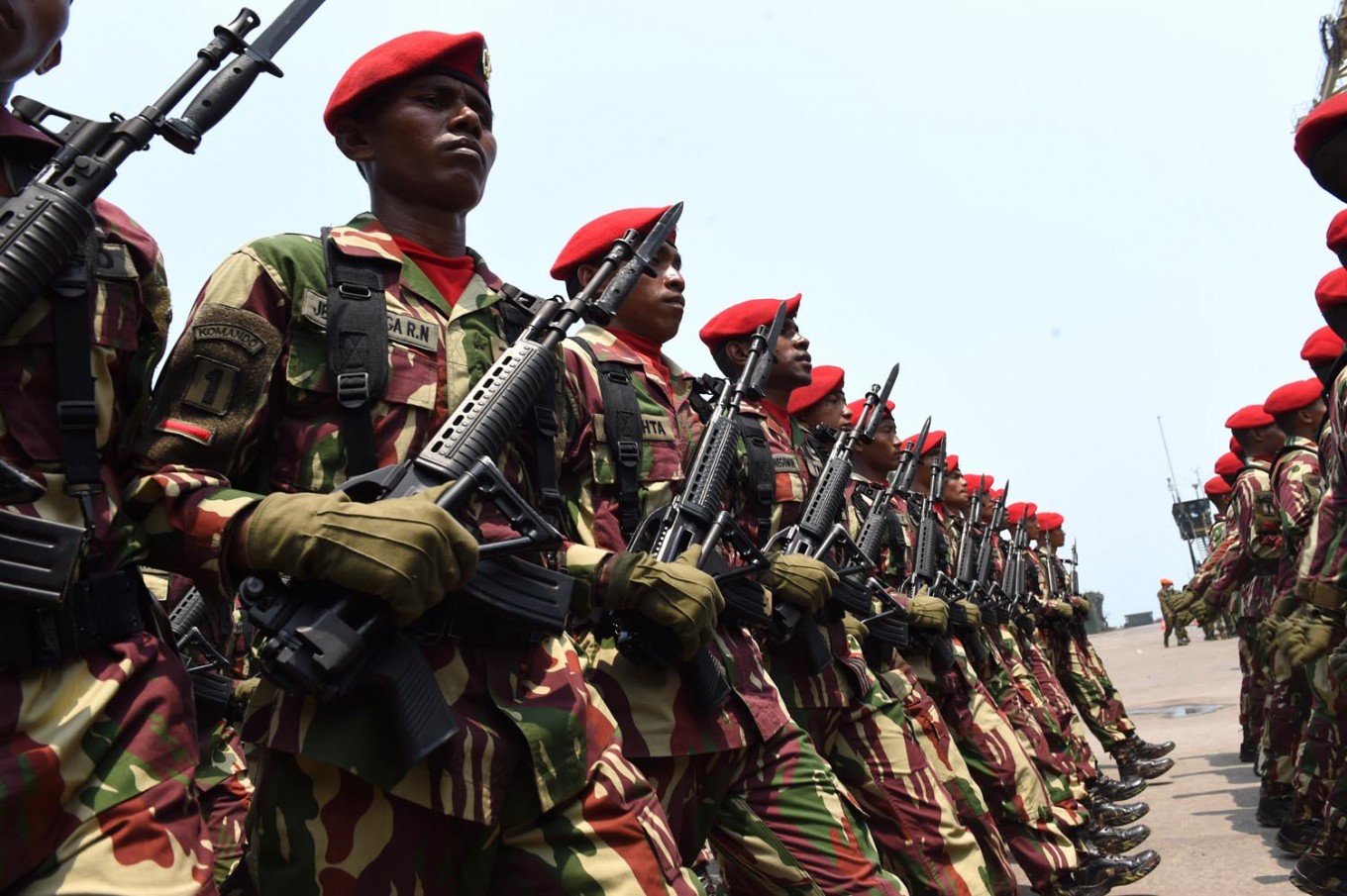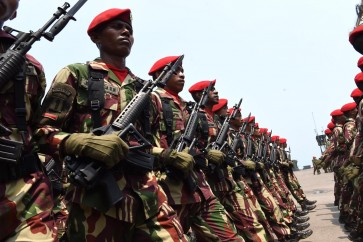Popular Reads
Top Results
Can't find what you're looking for?
View all search resultsPopular Reads
Top Results
Can't find what you're looking for?
View all search resultsDefending Indonesia: A forward strategy
The future is the era of brain war, where the thinking and innovative nation will gain global competitive advantages and significantly increase its chances to win a war.
Change text size
Gift Premium Articles
to Anyone
 Indonesia's elite military unit Kopasus parade in formation during an exercise at a naval base in Cilegon, West Java province on October 3, 2015 in preparation for the 70th anniversary celebration of the Indonesian Armed Forces on October 5 to be led by Indonesian President Joko Widodo. (AFP/Romeo Gacad)
Indonesia's elite military unit Kopasus parade in formation during an exercise at a naval base in Cilegon, West Java province on October 3, 2015 in preparation for the 70th anniversary celebration of the Indonesian Armed Forces on October 5 to be led by Indonesian President Joko Widodo. (AFP/Romeo Gacad)
L
ast January, the Defense Ministry issued a state defense policy that is still anchored in the 2009-2024 defense strategy and posture development, released in 2008. However, such a policy will be meaningless if the ministry fails to reexamine and remedy a set of established assumptions inherent in this policy.
As strategy is about getting to the next stage rather than some ultimate destination, immediate remedies are to be made within the timeframe of 2020-2024 if Indonesia is going to reap the expected strategic objectives from 2024 onward.
Correspondingly, with the timeframe of no less than four years and not more than 25 years (2020-2045), the defense strategy in 2020 shall be reviewed from five strategic dimensions: the root of Indonesia’s national security interests; the international system; global trends; how, when and where to develop, deploy and employ the Indonesian armed forces; and how to strategically synchronize nonmilitary dimensions of war (political, economic, psychological, technological and cybernetic) into overall national defense capability especially in the peaceful, interwar period.
Of these five strategic dimensions, the 2020 defense strategy shall futuristically and methodologically reexamine assumptions about five policy options: control option; foreign policy option; force development option; resource allocation option and force employment option.
The first assumption pertains to how the civil-military relationship is being shaped and how it corresponds to future states. Since the 1998 tension has brewed between the Indonesian Military (TNI) headquarters and the Ministry of Defense and tended to impede a wide spectrum of issues, from political control on one end to defense procurement on the other.
This situation has not improved, even though, for the last six years, the defense minister post has been occupied by two retired Army generals. In other words, the effectual implementation of defense strategy for the next 25 years will be largely determined by how this civil-military relationship is settled from 2020-2024.
The second assumption is how well the national defense strategy predicts possible global and domestic political scenarios, followed by a corresponding combination of military and nonmilitary instruments of power. Unexpected scenarios to be considered are the possible clash of great powers in the region, less ASEAN support and a less favorable environments for Indonesian defense interests, a failure to defend national ideology, intensifying unconventional warfare including but not limited to insurgency, terrorism and biological warfare, and incoherent interagency working relationships within the government that exacerbate a number of other unexpected security scenarios.
















